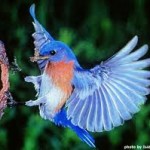 I could change the name of my blog to Doctors, Ad Seriatim. I’m posting this early because today we're heading downstate, to Ann Arbor, having a pre-op consultation for Jerry’s very-big-deal back surgery on Dec. 3. He’ll be in the hospital for about a week, rehab after that. About six months’ recovery time. Another winter of hunkering down and getting better.
I could change the name of my blog to Doctors, Ad Seriatim. I’m posting this early because today we're heading downstate, to Ann Arbor, having a pre-op consultation for Jerry’s very-big-deal back surgery on Dec. 3. He’ll be in the hospital for about a week, rehab after that. About six months’ recovery time. Another winter of hunkering down and getting better.
How will this be for us, after last winter? A friend wrote to say how glad she was to see that I feel like relegating cancer to a much lesser position in my posts. The last two, it’s hardly been there. True. I think about it less. Partly, that’s because it’s an integral part of my system, now. You don’t describe how it is brushing your teeth because you do it every day, and unless you find you have a loose tooth, it’s not worth mentioning.
Coming back from chemo and radiation is not unlike returning to the world after, say, a year in a monastery. The world seems fast and energetic. I didn’t realize how small it had grown last winter. I seemed to still DO things—wrote this blog, wrote commentaries for IPR radio, wrote some poems, had a book launch party, spent time with people as often as I could. Nonetheless, my mind was turned in on itself, the way the sick do, gathering its forces to keep on keeping on.
These days I tire easily. I get overwhelmed even by being in a big store, shelves and shelves of stuff, mental noise. It’s an interesting quality of tired. Not the old “I’m bushed” kind, the body feeling a bit deliciously tired, worn out from activity. It feels kind of chemical, I’ll call it that for lack of a better description. It feels like a deep inability in the bones to muster the basic elements of aliveness. Maybe it’ll always be this way. My body had a mega-whammy of abuse. Probably I’ll get some better, maybe a lot. Sometimes I’m discouraged, sometimes not.
And I still have pain and weakness in my left hip from some overuse that must have occurred last summer, still trying to improve this with physical therapy.
 So now we plunge back into the fray, negotiating the giant U. of Michigan Medical Center and all that implies. Jerry worries how this will be for me. What about him? Last year was difficult for him, too, as you can imagine, and now he’s in for it again, though different. But it'll all be okay. It'll be okay even when it's not. It's being alive.
So now we plunge back into the fray, negotiating the giant U. of Michigan Medical Center and all that implies. Jerry worries how this will be for me. What about him? Last year was difficult for him, too, as you can imagine, and now he’s in for it again, though different. But it'll all be okay. It'll be okay even when it's not. It's being alive.
And who can do more than one thing at a time? First this thing, then the next. That’s how it goes. Trouble only feels Huge if I start adding into the mix a bunch of projections and concepts about it. And when I do that, it’s only a problem if I begin blaming myself for doing it!
One-thing-after-the-other is a gift Trouble gives, it looks like. Not as in balancing the scales, not as in “Something good always comes out of it.” There's not a sunny “side” to illness and pain, period. But I see there’s a recalibration, a slowing down, a reconsideration made possible by the slowing down: What am I, anyway? And—the old question—What am I doing with my one precious life? which maybe ought to be amended to Am I even noticing my one precious life?
I picked out a poem from No Need of Sympathy that seems to be about noticing, both the tangible and the intangible:
Birdhouse
Remember the year we had bluebirds there?
How they came back the next year, poked their noses
in and changed their minds? After that it was all swallows,
after we knew to clean out the twigs to get the house
ready for renters. Swallows or wrens. Oh, they might
have been wrens, sometimes. They might have been
wrens all along, but I like the word swallow. I think
they were swallows. That tiny slender trilling down
the scale. Wrens sound like their bodies, compact
and insistent. It was good to have either,
and their chicks. Especially their chicks, evident
only by the to-and-fro of the mothers, their fierce
judgments. It was good to have that life greet us
at the corner of the house. Bluebirds, we felt blessed.
They let us know who was in charge: blast, blast, chitter.
Also the color, the royal robes. But the swallows,
the way they swooped in and out! Who doesn’t love
the word swooped? When they were crossing
to the trees beyond our drive, remember how we’d sit
in our kitchen chairs by the glass doors? It was so
peaceful to watch that industry, that tiny hope
carrying on, not caring a whit about us.

